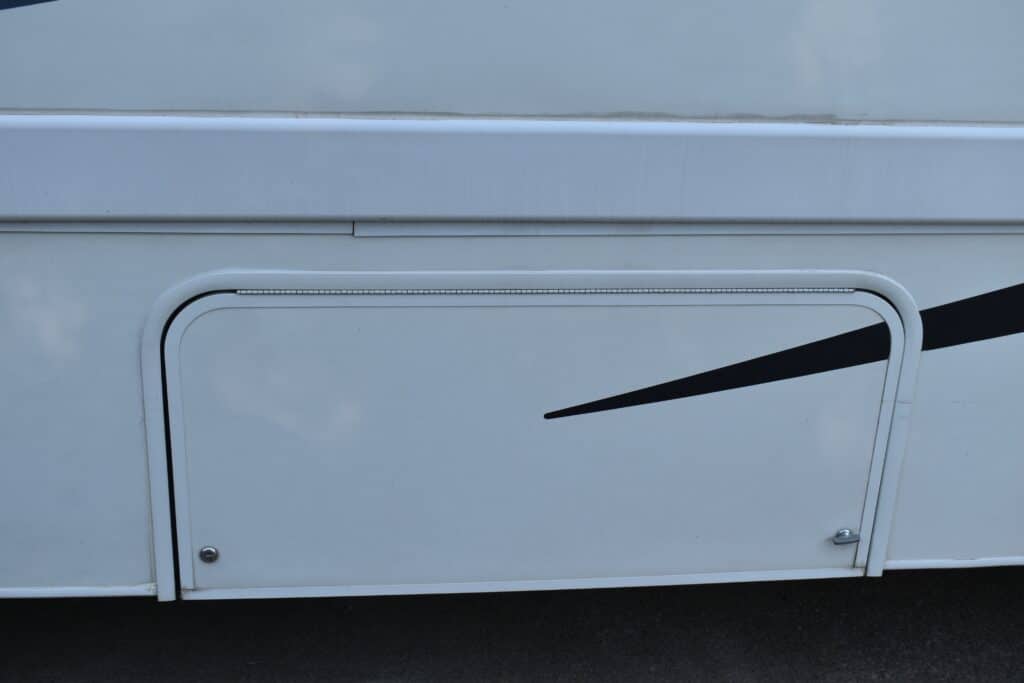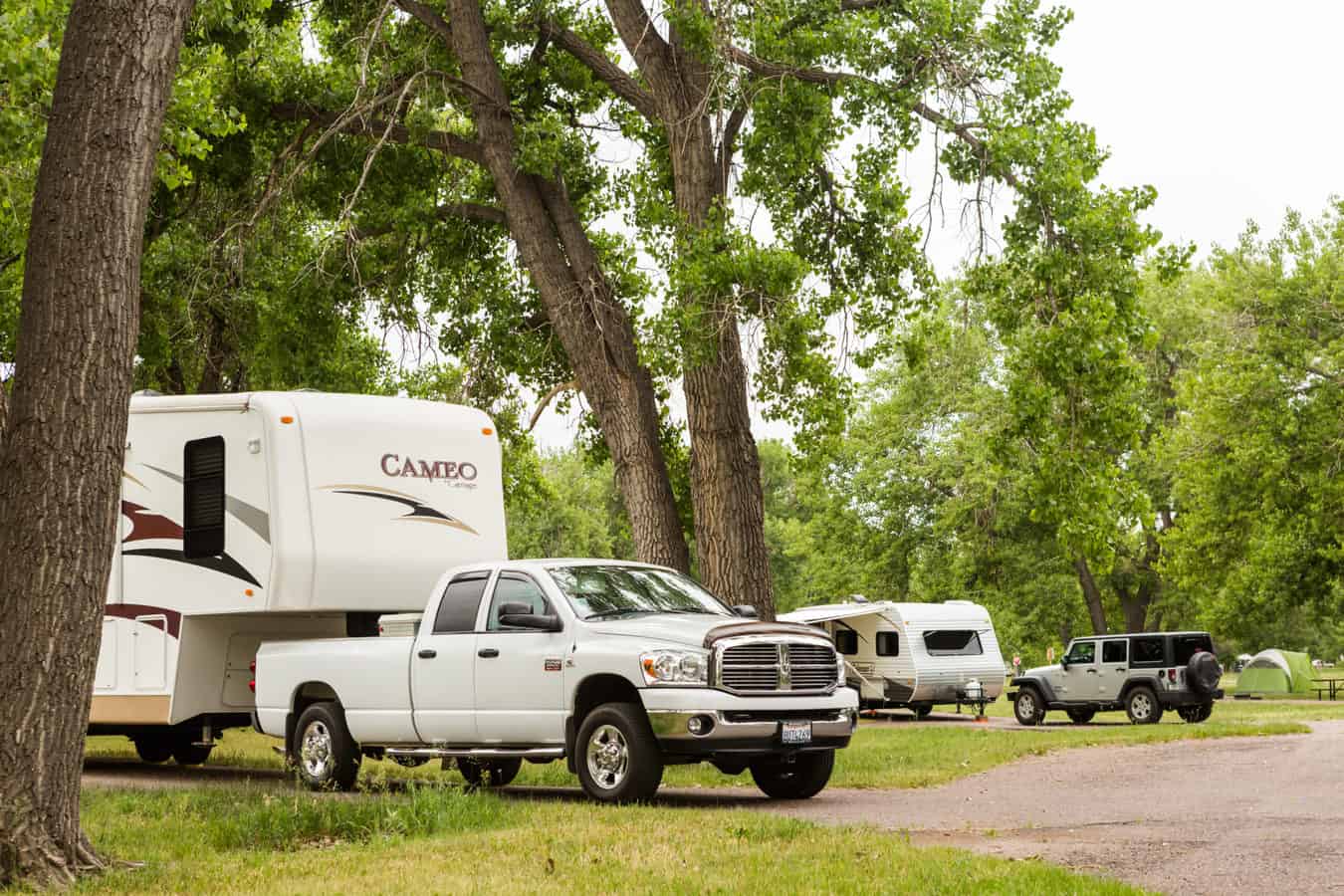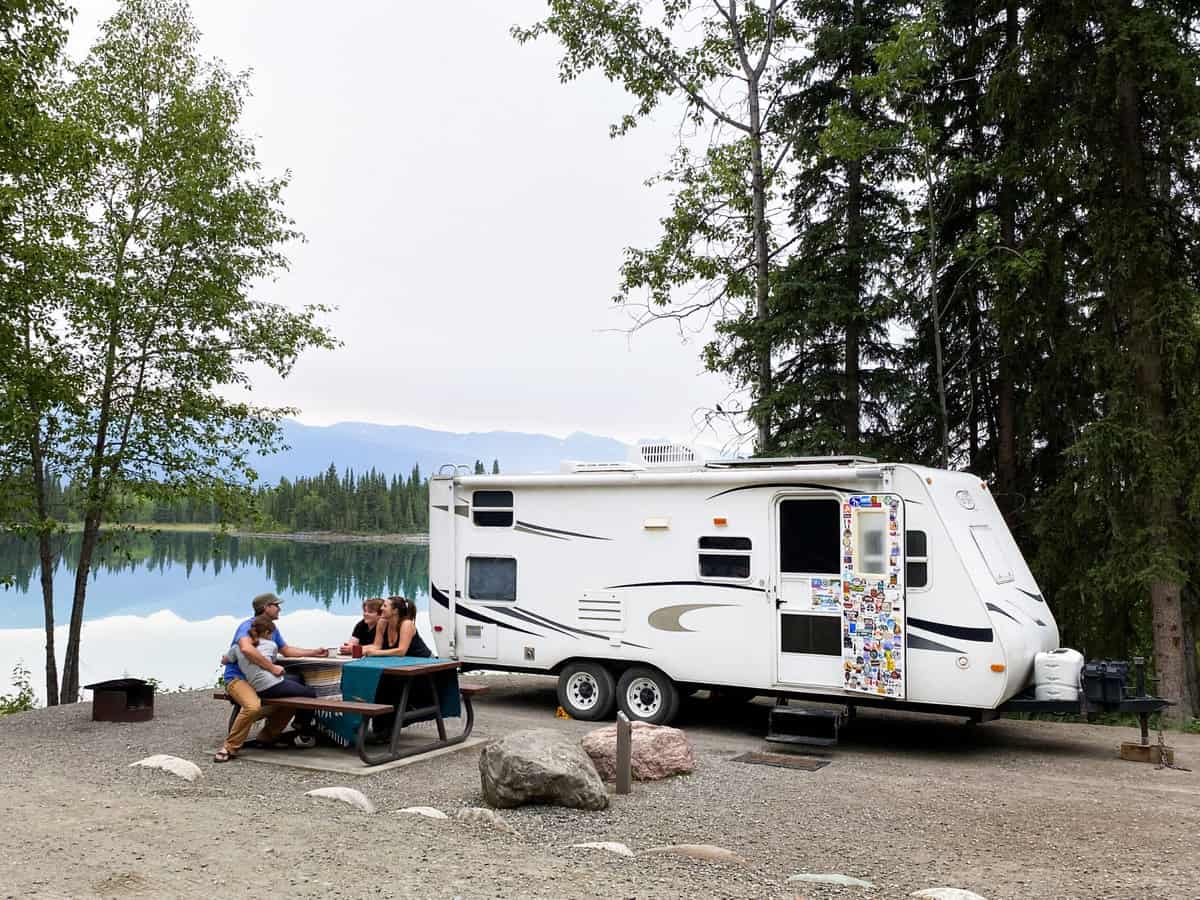
Locks For RV Storage Compartments: Do You Really Need Them?
We have all fought to get things in and out of RV storage compartments. Often, we have them overloaded with things, some of which we never even use.
Amongst the pool noodles and hot dog sticks, there can be valuable items as well. Hitches, surge protectors, and other expensive items make their way into these storage compartments as well.
Most RV storage compartments come with locking doors. Although they are far from impenetrable, locks for RV storage compartments will keep the honest people out.
These small locks often seize up over time, and it’s not uncommon to find RVs with unsecured storage compartments. Between the fact that they seem to seize up so easily, along with knowing that it’s not uncommon for multiple keys to work in these cheap locks, many people don’t concern themselves with whether they work or not.
In a perfect world, we wouldn’t have to worry about locking up our things. Unfortunately, this is not always the case. Although most campgrounds and storage yards are safe, it’s better safe than sorry.
Do you need locks for RV storage compartments?
RV storage locks are like car insurance: you probably won’t need them, but it’s smart to have them. Any time your RV is unattended, whether it’s at a campground, in storage, or stopped at a Walmart on your travel, there is the potential for theft.
As a general rule, we shouldn’t store anything of great value in these exterior compartments. The idea is more so to have easy access to items like wheel caulks and lawn chairs. That being said, the theft of anything belonging to you is unfortunate and can cause problems, including ruining a trip.
The factory locks on most RVs are pretty cheap, so they do often cause issues, but as mentioned they are cheap to replace. Having the peace of mind that your things are secure is worth the small investment of money and time to replace faulty locks. Upgraded locks are also available and not very expensive, so it makes sense to have proper working locks for RV storage compartments.
As with any type of security, whether it’s locks, cameras, or alarms, nothing is guaranteed to prevent theft. However, having RV storage compartment locks is an easy way to greatly reduce the risk of theft.
So, do you need them? No. Should you have them? Yes. Having a space to quickly and safely store hitches, electrical attachments, and sports equipment is the purpose of these compartments, so you might as well take advantage.
How safe are these locks?
RV storage compartment locks are made to prevent easy theft of contents. However, if someone wants into your RV storage, they are going to get in. The factory locks are generally small metal tabs that swivel and lock in place in a small cut-out in the frame of the compartment door. They are not designed to withstand prying or impact but simply prevent easy access.
Since they are not designed to be robust and RVs are mass-produced (often cheaply), your locks keys likely aren’t even unique. CH751 is a very common number to see on storage keys and these keys will open lots of similar locks. A quick fix to this is to replace your locks with a different number keyed lock. These locks will not likely be any stronger; however, they will be keyed differently than all the others out there.
If you are switching locks, it makes sense to upgrade to something better. There are locks that look very similar and aren’t necessarily stronger but use a different style key that is less likely to cause problems. Many storage doors only use a key on one side, making it easy to pry the other side of the door open. Adding a second lock so that both sides are secure is another way to up your security.
Take care of your locks
RV locks are exposed to the elements year-round and often are unused for long periods of time. From the time your RV is new or you install new locks, maintaining them will help keep them from failing.
Using a suitable lubricant and functioning the locks throughout the year will keep them moving freely and help prevent seizing. Keeping the locks clean and free of dirt will also help. Inserting a key into a lock that’s covered in grime and road debris just pushes that grime inside the lock.
If you do have a lock that feels tight and difficult to turn, don’t force it. Try freeing it up with some penetrating fluid and slowly and gently working it open. The same goes for closing the compartment doors and latches.
If the door isn’t closing properly, don’t force the lock closed. This will only bend the latch and put pressure on the lock components.
RV storage compartment locks keep your things secure and where you left them. Some cheap insurance is upgrading to uniquely keyed locks and possibly adding extra locks or a more secure style of lock. Regularly maintaining your locks for RV storage compartments will keep your valuables safe and easily accessible whenever you need them.
Make sure you keep track of all your RV maintenance and repairs with an online tool such as RV LIFE Maintenance. Not only can you keep all of your documents in one place, but you’ll also receive timely reminders when maintenance is due to help you avoid costly repairs and potentially serious accidents.
Continue reading:





I installed these locks shorly after I purchased my 2021 Sunseeker. A little bit of fooling around with adjustment but once set haven’t had any problems and thier good people to deal with.
The lock shown in the picture tends to corrode and fail sooner than the typical flat key. It has lots of much smaller parts. They are fine in a computer room but not if they are exposed to harsh environment. In an industrial setting I have had to replace many.